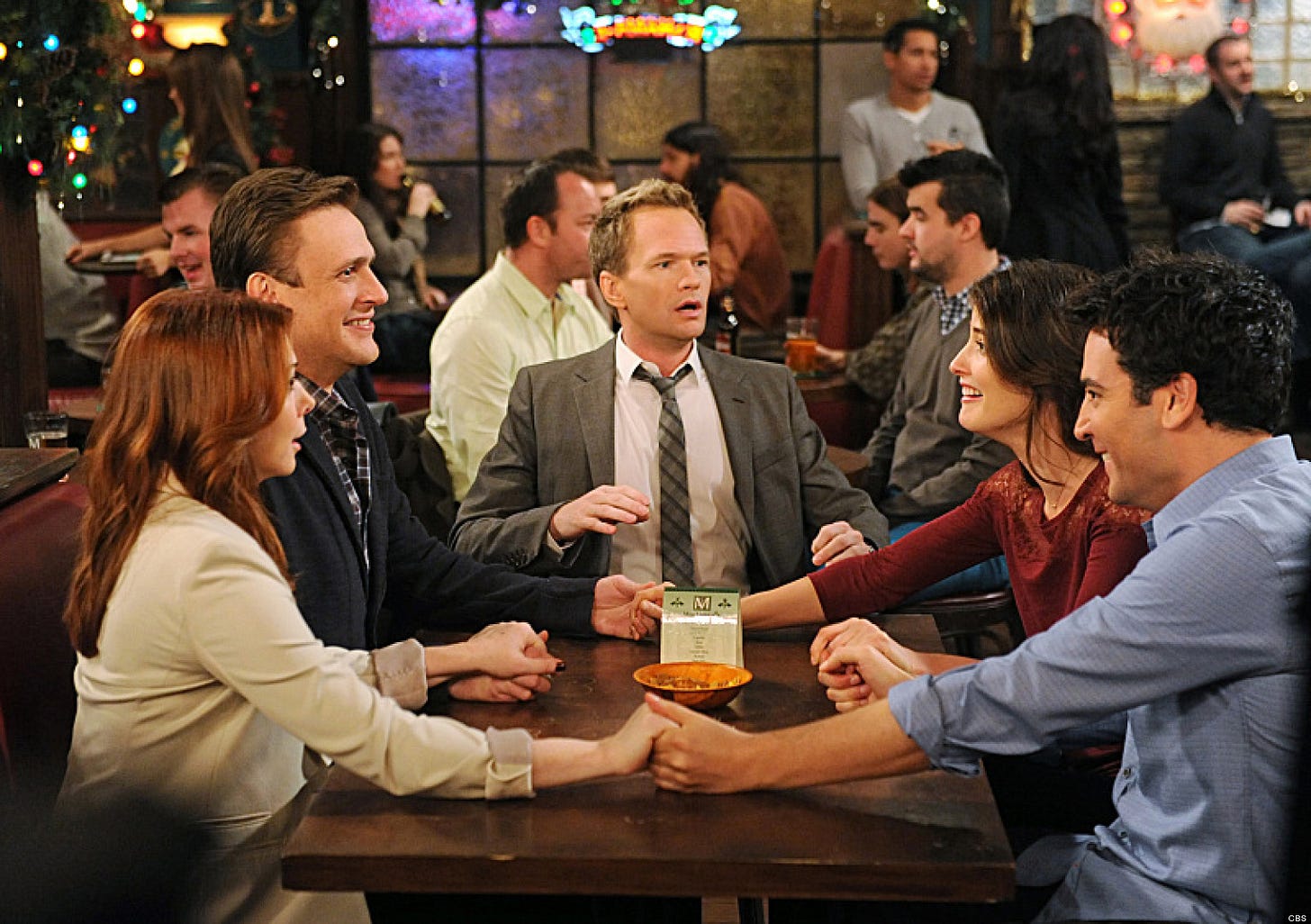How Many Episodes Should You Watch Before Quitting a TV Show? A Statistical Analysis
When to quit a subpar TV show, according to the data.
Intro: Breaking Bad and the Late Bloomer Problem
Some TV shows take a while to "get good." Modern classics like Breaking Bad, The Wire, Community, and Bojack Horseman are notorious for "starting slow" and are often recommended with a disclaimer like "Give it a few episodes; I promise it gets good!"
At the same time, some shows never get good. Recently, I started a spy series called The Agency, which could best be characterized as premium mediocre (at least so far). There are big-name actors (Michael Fassbender, Jeffrey Wright, Richard Gere), expensive sets, and glossy camerawork—but after a few installments, I'm trapped in a liminal space between engaged and listless. At the end of each episode, I'm left with the same thought: "Maybe the next one will get good."
Committing to a mediocre program or continuing with a floundering series elicits a state of (mildly) torturous ambiguity. Should you cut your losses, or is this show some late-blooming classic like Breaking Bad? What is the optimal number of episodes one should watch before cleansing a subpar series from their life? Surely, a universal number must exist! Like 42, but for television.
So today, we'll explore how long it takes a new show to reach its full potential and how many lackluster episodes you should grant an established series before cutting ties.
How Many Episodes Should You Give a New Show Before Calling it Quits?
According to IMDb user ratings (which range from 1 to 10), the average episode of Friends scores around ~8.34—which is quite high. This figure can serve as a practical benchmark for assessing show quality: a Friends episode scoring above this marker can be considered above-average, while those scoring below qualify as below-average.
Some series, like Game of Thrones or The X-Files, reach or surpass this quality benchmark in their first episode, while others take longer to find their footing. In the case of Friends, the show's first six episodes fall below the series average of ~8.34 before finally surpassing this threshold in episode seven. Said differently, the seventh episode of Friends was the first installment to meet the standard set by the rest of the series.
For every show in IMDb's database, we'll compare individual episode scores against their corresponding quality benchmarks, then average the resulting differential by episode number. According to our findings, most shows require six to seven installments before early ratings match (or exceed) the long-term average for that series.
That's a lot of time! In today's era of prestige television, entire seasons can unfold in just six hour-long episodes. In that same span, I could read one-tenth of Infinite Jest or speed through Goodnight Moon 180 times. I hoped this analysis would justify abandoning The Agency, but alas, I must follow my own guidance and endure two more episodes of this relentlessly lukewarm show.
You might wonder why I’m picking on The Agency—what did this show do to deserve such disdain? In short, nothing. Many viewers may enjoy this series, but to me, The Agency epitomizes the ever-growing glut of costly-yet-unremarkable shows that compete for our attention. Each month, platforms like Netflix and Disney+ churn out dozens of new series to capture our time and a $10 renewal. Yet it wasn't always this way; the notion of having "too much content" is a relatively new phenomenon. Consider an era before Netflix and prestige television, when a show began as a pilot and had to prove itself worthy of a full season. How many series were canceled after an underwhelming premiere—just five episodes shy of finding their audience?
In fact, several all-time classics needed more than five episodes to match or surpass their long-term quality standard—including Seinfeld, which found its groove after 16 episodes.
These findings offer reassurance to any creator whose show was abruptly canceled. This elite pool of Hollywood producers can sleep easy knowing their masterwork was simply misunderstood, yanked from the airwaves by antsy executives catering to a horde of impatient viewers. If your show was canceled before episode six, you've essentially created a cult classic minus the "cult" part. Congratulations.
Yet these figures only cover one half of the TV Watcher's Dilemma. After all, people can quit a show following a handful of episodes or after several seasons of fandom. Recently, I've been slogging through the third season of Yellowjackets, unsure whether I should consciously uncouple from this show.
Given all my complaints thus far, I know what you're thinking: watching TV is hard! Paying $9.99 a month for endless content access is quite the burden—there are so many premium mediocre shows to be sampled and, later, forgotten!
Yellowjackets has already consumed two season's worth of time, but that doesn't mean I am forever indebted to this show. How many episodes should we grant a flailing series before finally pulling the plug?
Enjoying the article thus far and want more data-centric pop culture content?
How Long Should You Stick With a Struggling Show?
A few years ago, I analyzed IMDb ratings to determine when the average show "jumps the shark"—in search of a universal tipping point when long-running series start to decline in quality.
Typically, this inflection point occurs around seasons five and six, with episode ratings dropping below first-season averages and continuing to fall until the show is canceled.
Several prominent series have "jumped the shark" in dramatic fashion, such as Game of Thrones, House of Cards, and Master of None.
Here lies an unavoidable truth of television: if a series runs long enough, there will probably be some quality degradation.
It's one thing to know this maxim in the abstract, but how can we discern if a permanent decline is occurring in real time? Some shows falter for a handful of episodes—preoccupied with subpar storylines—before mounting a swift recovery. One deeply flawed subplot in the second season of Friday Night Lights nearly killed the entire show (I won't spoil this fifteen-year-old program, but if you're a fan, you'll know what I'm talking about). Once resolved, the series returned to form and now sits at #116 on IMDb's list of greatest TV shows.
Has Yellowjackets "jumped the shark" like House of Cards, or is it simply in the midst of a few below-average episodes like Friday Night Lights season two? How many bad episodes should you endure before quitting a show?
Viewers have a preconceived notion of series quality before watching a given episode—if a new installment falls below an established standard, it can be considered subpar. Consider the first few episodes of House of Cards' dumpster fire sixth season, which begins with five below-average installments and does not recover in subsequent episodes. The show is:
Continuously bad in consecutive episodes (dating back to the fifth season)
Lackluster for the rest of its run, failing to recapture its initial quality standard.
By analyzing historical recovery patterns for every series in IMDb’s database, we can gauge a show's chances of “bouncing back” after a series of disappointing episodes. Our findings indicate that after six consecutive subpar episodes, the likelihood of a permanent decline surpasses 50%.
I'm slightly unnerved by the tidiness of these findings—why is six the answer to all these questions? Perhaps this is a case of random happenstance. Or maybe six is some golden number applicable to all television-centric quandaries, much like 42.
Final Thoughts: Past Decisions and Future Rewards
Humans are reluctant to let go of something once it's proven valuable. Believe it or not, this bias is not unique to our species.
In a 2018 study published in Science, researchers designed parallel foraging tasks to examine decision-making in mice, rats, and humans. The study found that all three species exhibited similar sensitivities to sunk costs, persisting in a chosen action based on prior time investment, even when that task was no longer providing reward. Likewise, a 2012 study of pigeons demonstrated a comparable tendency toward sunk-cost thinking, as they continued engaging in familiar routines even after those behaviors stopped yielding benefits. Once a commitment has been made, many animals—including humans—struggle to weigh future outcomes without being influenced by past decisions.
Now, consider me—neither sky-rat nor land-rat—and my unfortunate commitment to How I Met Your Mother. I stuck with this show for 9 seasons, each with ~26 episodes, over the course of 10 years. I kept watching even after the show had clearly "jumped the shark." I had already seen six seasons, so why not a few more? Plus, I wanted to know how he met the Mother!
Well, much like a rat or pigeon, my decision-making was flawed, and I paid the price. The show's finale is arguably one of the single greatest (metaphorical) middle fingers ever thrust upon a dedicated fanbase. If you do not want this wildly disappointing decade-old show spoiled, then skip the text block below:
After Ted finally meets the titular Mother, the woman he has spent nine seasons searching for, the show quickly fast-forwards through their relationship and marriage—only to reveal that she dies from an unspecified illness. Ted's kids realize the reason he's telling them this story is to justify his desire to reunite with Robin (one of the other main characters). The series ends with Ted arriving at Robin's apartment to win her back.
I would have been better off missing this finale due to a kidney stone. For a fleeting moment in time, I understood why people write angry fan mail and review-bomb things. The previous 207 episodes of How I Met Your Mother had been rendered meaningless.
How had I gotten to this point, especially when I should have tapped out long ago? Had I errored? Did I somehow deserve this?
I can only let this self-flagellation go so far. Much like a pigeon or rat, I continued with my (metaphorical) foraging task even when it was no longer providing reward. Silly me!
All species—land, gutter, and sea—struggle with quitting. And no amount of data can shake our primordial conviction that, somehow, the next episode will be the one where the show finally gets good.
Struggling With a Data Problem? Stat Significant Can Help!
Having trouble extracting insights from your data? Need assistance on a data or research project? Well, you’re in luck because Stat Significant offers data consulting services and can help with:
Insights: Unlock actionable insights from your data with customized analyses that drive strategic growth and help you make informed decisions.
Dashboard-Building: Transform your data into clear, compelling dashboards that deliver real-time insights.
Data Architecture: Make your existing data usable through extraction, cleaning, transformation, and the creation of data pipelines.
Want to chat? Drop me an email at daniel@statsignificant.com, connect with me on LinkedIn, reply to this email, or book a free data consultation at the link below.
Want to chat about data and statistics? Have an interesting data project? Looking to produce data-centric editorial content? Email daniel@statsignificant.com














I often plug TV shows into https://www.ratingraph.com/ to see if the show will get better and one of the things I look at is Total Votes per Episode. It's possible that the show's episode scores are only increasing due to selection effects (people who dislike the show are dropping it and not voting on later episodes).
Even good shows have declining votes per episode in their first season. But in my experience, bad shows tend to have a worse decline. For example, the first seasons of The Agency and Breaking Bad both have episode scores that trend upward. But votes for The Agency episodes dropped from a high of 1,124 to low of 483 (57% decline), whereas Breaking Bad's first season had a peak decline of 34%.
I wonder if there's a difference by episode length. Investing 3h to watch 6x 30min episodes seems more bearable than 6h for a show that I'll maybe like.... In both cases too high for me!